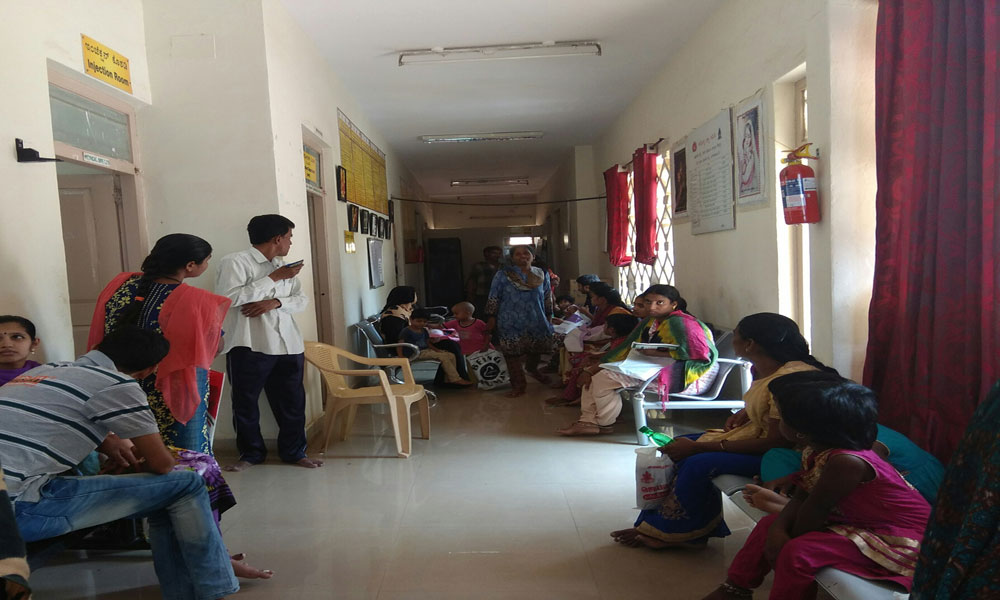The maternal health schemes in the state haven’t been functioning to their full capacity to reap benefits
Bangalore, April 9, 2018: Indu waits eagerly for the check- up of her one year old son at Magadi Road Maternity hospital. At 22, she has already given birth to two children, one of whom is already five years old. She mentioned that she received benefits under the Bhagyalaxmi scheme during the birth of her elder daughter. However, she added that for the birth of her second child, she did not avail the benefits of any maternal health schemes. Not even the Bhagyalaxmi scheme, as the child was male, and the scheme covers only the girl child.
Maternal healthcare schemes in the state are aplenty but the services haven’t been completely successful in improving healthcare of mothers in the state. Currently, the country accounts for 20 per cent of the total maternal deaths globally. In Karnataka alone, the most recent data shows that 648 women have died in 2015-2016.
Tulsi Bai, a nurse at the Magadi Road Maternity Hospital who has been working in maternal healthcare for nearly ten years, mentioned various healthcare schemes that are being run to help women who are expecting a child.
The Janani Suraksha Yojana (JSY), a scheme initiated in 2005 by the Ministry of Health and Family Welfare under the National Health Mission, only benefits 19.9 per cent pregnant women in the state through financial assistance for institutional deliveries, reveals the National Family Heath Survey (NFHS-4) data.
Dr. Rajeev D, MBBS, MD Pediatrics based in Bangalore, emphasized the importance of institutional deliveries in ensuring better health for both mother and child. He said that this has to do more with practicing good hygiene and the presence of skilled health personnel.
The Prasuti Araika scheme which had come to a standstill for almost a year in 2015-16 due to an alleged cash crunch only picked up last year. Also, the application process is long-drawn and those who wish to avail these services need to produce a list a documents.
The assessment of another such scheme, the Thayi Bhagya Scheme, revealed that the scheme needs to be strengthened to make it more effective in achieving its objectives. In addition to the schemes listed above, the latest one introduced by the government in October 2017 was the Karnataka Mathru Purna Scheme —the benefits of which are yet to be assessed.
Dr. Nalini Kumari, Gynecologist and obstetrician in Bangalore, mentioned that pregnancy is a crucial period as a lot of complications crop up around this time. She mentioned diabetes and hypertension as some of the key problems during pregnancy.
Tulsi, the nurse, also mentioned complications that come up during teenage pregnancies. Complications also arise when these women are anemic. The percentage of women who consumed folic acid tablets —vitamins that can prevent birth defects in the brain and spinal cord —within the first 100 days of pregnancy is also just 45 percent.
The NFHS-4 data has also revealed that 32.9 per cent women get full prenatal care in the state. Asha Kilaru, an independent Public Health Researcher and co-founder of an NGO called Bangalore Birth Network (BBN), mentioned that women realize that they are expecting a child very late and this sometimes affects their health.
Research conducted in several districts of Bangalore also found that awareness of public health facilities need to be increased for effectively implementing these maternal schemes.
Dr. Nalini said that for the health schemes to function effectively, what is required is proper coordination between the health care providers like the ASHA workers and the delivery institutions.




